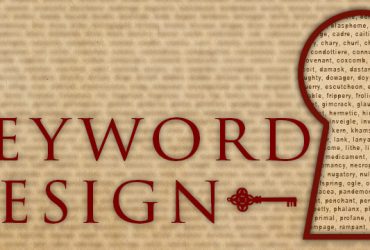Variety is truly the dice of life. Unless of course that variety throws a wrench into your carefully crafted Game Mastering.
Players aren’t the only factors that can take your game completely off the rails. Because the best laid plans of dice and men often go awry. Specifically the dice part. Pathfinder, after all, is a game that uses a random number generator to determine the outcome of skill-based and opposed actions. The simple maths of comparing a randomly generator number (after modifiers) to a target number means that it’s fairly straight forward to analyze how “good” or “bad” a character might be at a given task, especially of those target numbers (Difficulty Classes) are known before hand.
So to mitigate the chances of failure, players will often attempt to acquire positive bonuses that are associated with the target numbers of the checks that they want their characters to be good at. This is more commonly known as optimizing. The morality of PC optimization is a huge grey area and a topic for another time. Today’s article is about dealing with randomly generated outcomes.
Bad dice can happen to even the best of us. But auto-hits and auto-fails exist in the game, even the highest AC, attack bonuses, or Saves can’t protect characters from all the negative consequences of adventuring. But what’s a few HPs or temporary status effects between friends? What’s a hero without a rakishly good-looking scar across her cheek? So much of Pathfinder so heavily revolves around the mitigation of bad luck that we can sometimes forget how the the effects of that randomness can sometimes be disruptive.
How often have your players gone on a tangent and side-tracked an adventure because they wanted to pursue something that was incidental to the plot that you were trying develop? How disruptive was that to the overall flow of your narrative? In most cases it’s probably fine because at least your players are doing that which interests them. It might even turn into a fun little side plot. But what if that plot digression was caused by a bad roll of the dice? A PC is critically struck by an Ogre with an ogre-hook and his HP drops way past negative Constitution. A natural 1 is rolled against a save-or-die spell and the PC is reduced to a pile of ash. A PC fails a crucial skill check and the party is unable to progress along that line of investigation. Sometimes bad luck happens. And as a GM you’ll have to decided how to handle it in a way that’s best for your players and your game.
Once, years ago, my Wizard tossed out a Prismatic Spray that hit all of the evil giants in a room. It also happened to tag our party’s Paladin-Monk who was in the middle of dispensing holy justice. Paladin-Monk saving throws being what they are, the player was entirely okay with me including his character in the effect of the spell. The spell successfully neutralized only some of the giants, but unfortunately our Paladin-Monk rolled a natural 1 on his save and was banished to a random plane of existence. Without any way of knowing where the Paladin-Monk was, he was effectively removed from the encounter.
What? What!? It’s not my fault. It’s not anyone’s fault. If anything it was the dice’s fault.
This wasn’t a hero’s sacrifice to save the world. This wasn’t a last noble gasp against the campaign’s evil tyrant. This was an unfortunate case of friendly fire that doomed a fellow party member in the least glorious of ways. A bit more random number generation determined that our Paladin-Monk had been transported to the Plane of Negative Energy and wasn’t quite likely to survive for very long. But our GM was able to roll with it and improvise so that we were able to effect a rescue by calling in some favors from some very powerful entities.
The point is, bad dice at the table can sometimes catch you and your players wrong-footed. As the GM, it’s important that you keep your players from becoming discouraged at the results. Try and spin negative outcomes to the players’ benefit. And remember it can be okay to fudge a result or two if you’re rolling behind the screens.
When was the last time your game was surprised by random chance? Were you and your players been able to adapt? Let me know in the comments section below!






